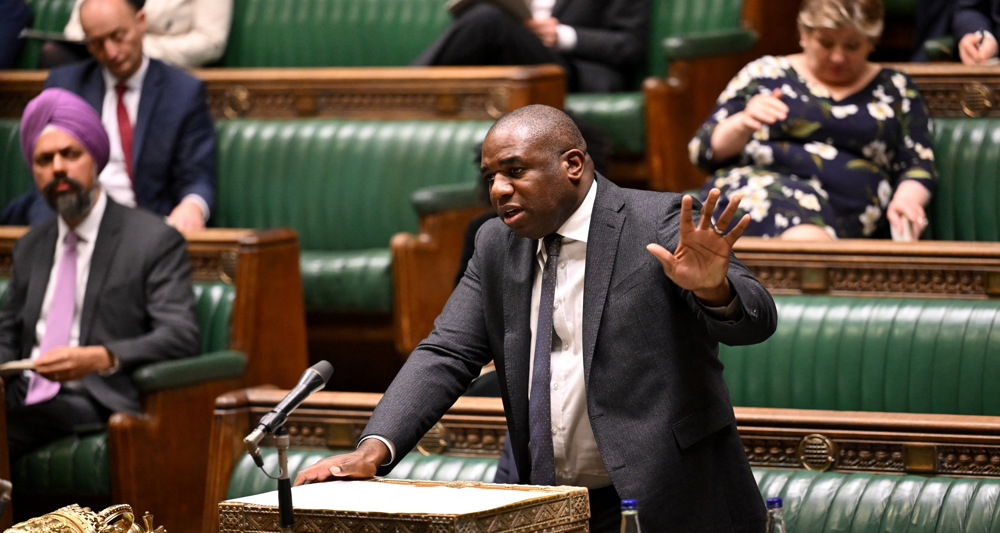Cameron says Syria’s Assad “must go”
British Prime Minister David Cameron has insisted that Syria’s President Bashar al-Assad must be toppled, even if he ends up playing an interim role in any transitional government.
"We want a Syria without ISIL and without Assad, because frankly there is no future for the Syrian people with a country which has either one or the other, both need to go,” Cameron said in New York on Sunday.
“But we should be clear... Assad going is in Syria's interests and ours too."
The British prime minister who is in the US for the annual UN General Assembly meeting emphasized that Assad could not be part of Syria's future in the long run.
"What we are saying, as we have always said, is you need on top of the military campaign against ISIL you need a political strategy and a peace settlement where you have a transition in Syria from Assad to something else, that has always been the case, it needs to happen and that is still the case," Cameron has been quoted as saying by Reuters.
The British prime minister had earlier been quoted by the media as saying that Assad can stay on as part of a transitional government.
However, he had emphasized that the incumbent Syrian president should not be part of Syria's future in the long run.
Other reports earlier said the British prime minister was preparing to tell the United Nations General Assembly that peace in Syria is impossible while President Assad remains in power.
However, unnamed government officials had been quoted as saying that London believes Assad would not necessarily have to go immediately as part of any peace deal for Syria.
Meanwhile, John Rees, a London-based analyst and Stop the War Coalition activist, in an interview with Press TV highlighted a contradiction in Cameron’s positions toward Syria.
“On the one hand, he says Assad must go and on the other he is saying that he can be part of the transitional government,” Rees said.
He added that Cameron is waiting to see whether the alliance between the Russians and the Americans will develop into something solid before he makes a final stance on Syria.
“He is waiting to see which way he will actually jump. He will then decide on whether he will back a negotiated solution that includes Assad in a transitional government or whether he will back away from,” Rees told Press TV’s UK Desk.
Nevertheless, he emphasized that the British are not expected to commit ground troops in Syria, adding that chances are that London would eventually support Moscow’s plan for the war-torn country.
“They cannot put boots on the ground themselves because it would be politically unacceptable,” Rees said. “So they are edging towards the possibility of supporting Russian moves on the ground, in the air and doing their own military campaign of bombing at the same time. That’s the situation that is emerging now.”
Report blames gasoil exports for shortage at Iranian power plants
VIDEO | Hind Rajab Foundation names Israeli war criminals vacationing after Gaza genocide
VIDEO | Australians rally for Gaza ahead of Christmas festivities
VIDEO | Attacks on Sana'a
Iran reports further drop in annual inflation rate in December
Israel indicts two settlers over suspected spying for Hezbollah
Iran: US airstrikes on Yemen war crimes, violation of international law
Yemeni armed forces down F-18 fighter jet, repel US-UK attack: Spokesman










 This makes it easy to access the Press TV website
This makes it easy to access the Press TV website